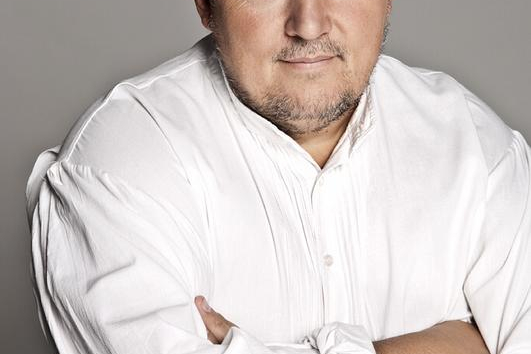
Back to the news
Our program
One of the most pressing questions in the increasingly united Europe of today is simply whether national cultures will be able to maintain their distinctive flavour in an ever-more international cultural arena, and whether the notion of a national culture can be harmonized with the values of modernity. We remain convinced that ideals on which the innovative music of Béla Bartók and Zoltán Kodály were based are valid in the case of theatre as well. Indeed while their interest in national culture may seem out of place in the context of modernity, the notion of cultural renewal based on the rediscovery of traditions and openness to the distinctive features of other cultures as well is a decidedly modern attitude towards art. All nations have their own languages, and not simply spoken languages, but also languages of gestures, intonations, pauses, and miens. Our company has always considered, in the articulation of our ars poetica, the nature of these distinctive Hungarian languages as constituent parts of the Hungarian theatre.
Kiev, Beregszász (Berehove in Ukrainian), Debrecen, Budapest
As a member of the Hungarian speaking minority of the Sub-Carpathian region of western Ukraine, Attila Vidnyánszky completed his studies in the dramatic arts in Kiev, where the curriculum was based on the traditions of the Russian theatre, in the spirit of Stanislavsky and Mikhail Chekhov. Upon finishing his studies, the young director was persuaded by the Ukrainian and Hungarian ministries of culture to found a Hungarian theatre company in Beregszász and start a class for Hungarian actors and actresses. He accepted the offer and resigned from his position as the leader of an excellent studio theatre in Kiev. This was to have a decisive impact on his life.
In 1993 the company, comprised of Hungarian actors and actresses who had studied at the Academy in Kiev, began to work under wretched circumstances, without the theatre building they had been promised. But in this “no-man’s land” they were able to work like a real experimental theatre, since they had no financial backing and so no one was able to interfere or influence the repertoire. Since there had never been a theatre in the area, they had both the opportunity and the responsibility of nurturing an audience. They went from village to village with performances based on the texts of such playwrights as Beckett, Eliot, Chekhov, Shakespeare, Mickiewicz, Boccaccio, and Csokonai. Following fifteen years of hard work and innumerable international triumphs, the company found itself struggling to subsist under increasingly hopeless circumstances.
In 2006 Vidnyánszky accepted a position as the artistic director of the Csokonai Theatre in Debrecen, a city some 100 kilometres from Beregszász. He thus managed to ensure the survival of the company he had founded, and at the same time discovered new prospects and brought new ideas to theatre life in Debrecen. From 2013 Attila Vidnyánszky is director of the Hungarian National Theatre in Budapest.
International contacts
One of the decisive parts of strategy we have adopted has been to invite famous directors from abroad to contribute to our productions. Directors such as the Polish Andrzej Bubień, the Russian Viktor Rizsakov, the Romanian Silviu Purcărete, the French Valère Novarina, the American Paul Zimmet, and the Ukranian Vlad Troickij and Sergej Maslobojschikov have participated in many of the roductions with the prose company of the theatre. These directors are all dramatic innovators. They seek means of crafting expressive theatrical portrayals of contemporary dramas, and they revive the classic dramas for our audiences, without overwrought or forced timeliness. Perhaps the most telling achievement is simply the fact that these directors have returned to work with our actors on numerous occasions.
(08 October 2013)

